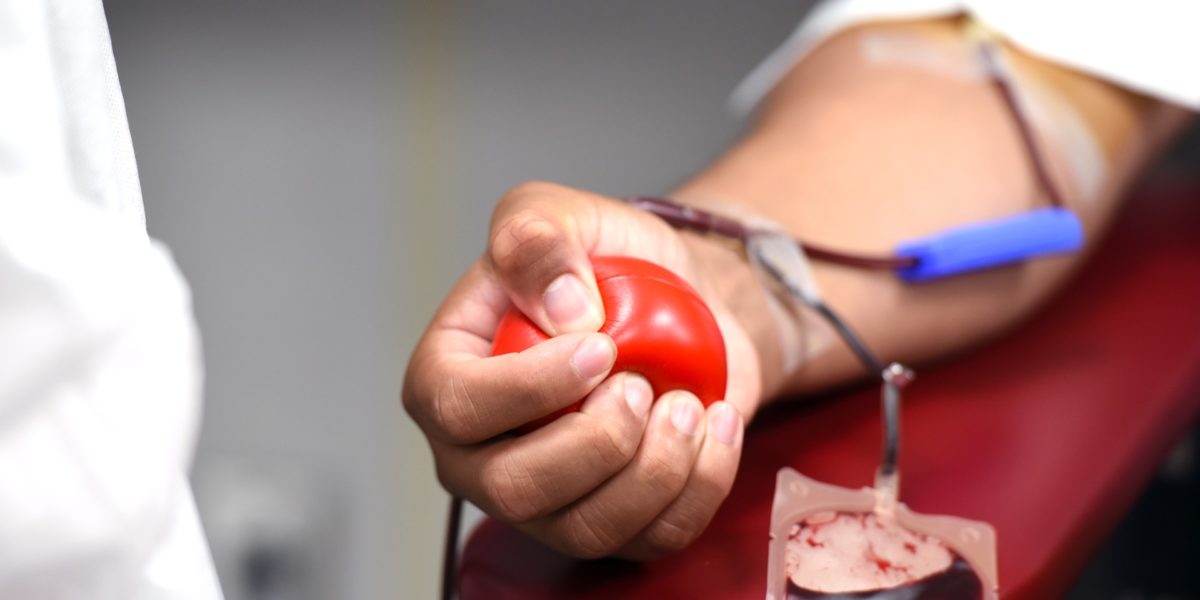The decades-long blood ban affecting men who have sex with men is set to come to an end.
The discriminatory ban, first introduced in 1992 at the height of the HIV/AIDS epidemic, imposed a lifetime ban on men who have sex with men from donating blood in Canada.
By relying on unsupported science to determine donor eligibility, the ban not only harmed gay men, but also Canadians in emergency care who were needlessly put at further risk of not getting life-saving transfusions.
Now, blood donors will be screened for “sexual behaviour” rather than “sexual orientation,” a move recommended by Canadian Blood Services in Dec. 2021. Set to launch on Sept. 30, the new behavioural questionnaire—which will apply to both blood and plasma donations—will ask donors “if they recently engaged in anal sex,” and other questions related to their sexual health.
While the move by Health Canada impacts most of the country, that is not the case for Quebec, who operate under their own health governance system.
End of gay blood ban “a cause for joy” and “about time”
The AIDS Coalition of Nova Scotia (ACNS) is an organization dedicated to erasing discrimination of HIV/AIDS while reducing the number of new cases of HIV in the province.
ACNS has been among the many organizations pushing for an end to the gay blood ban for years. In a release last week, ACNS called the move “cause for joy,” but recognized “much more work needs to be done both federally and provincially.”
“Instead of celebrating this moment in Canadian history, I’m simply left saying ‘it’s about time,'” Chris Aucoin, Executive Director of ACNS, said in the release.
Aucoin attributes the delay in lifting the ban to having “doubtless[ly] contributed to rising HIV rates in Canada,” noting that Canada is an outlier among other developed countries “where HIV rates have consistently been coming down.” He pointed to national pharmacare and better access to treatments such as the HIV preventative drug PrEP as critical steps to moving forward with health equity in Canada.
As ACNS points out: “HIV positive people who are diagnosed, on effective treatment, and who maintain a very low undetectable viral load, are 100 per cent medically unable to be the source of infection to others via sexual transmission.”
For Unifor, Canada’s largest private-sector union, the announcement represents an end to the 20-year-old policy that “previously discriminated against two-spirit, gay, bisexual, and queer men, trans women and men who have sex with men.”
“This announcement is a long-fought victory for workers and advocates, and for Canada’s safe supply of blood and tissue donations,” Lana Payne, Unifor National Secretary-Treasurer wrote in an April 28 media release. “These new policies will now reflect science, not outdated and discriminatory assumptions.”
The release indicates Unifor remains concerned about the lack of change in Quebec.
“While this shift brings us closer to an end to the ban, we encourage Héma-Québec to finally make the shift to a behaviour-based survey for all potential donors,” said Renaud Gagné, Unifor Quebec Director.
NDP celebrate “long-overdue victory” while panning the seven-year delay from Liberals
For NDP critic and deputy critic for 2SLGBTQI+ rights, Randall Garrison and Blake Desjarlais, the move by Health Canada is a “long-overdue victory for men who have sex with men, community members and allies who have worked tirelessly for years to push the government to act.”
In a press release issued last week, the respective MPs for Esquimalt–Saanich–Sooke and Edmonton Griesbach noted the decision to shift away from screening sexual orientation “isn’t just about helping end discrimination, blood donations are crucial to keep Canadians alive.”
Justin Trudeau ran his first campaign for Prime Minister in 2015 on a promise to end the “gay blood ban,” a promise repeated in the Liberals’ 2019 platform. Curiously, that promise did not appear in the party’s 2021 platform.
“In 2015, we promised to end the blood donation ban ….,” the 2019 plan reads. “Since then, that lifetime ban was reduced to one year, then down to three months in 2019.”
While the lifting of the lifetime ban for men who have sex with men was welcomed by advocates of the queer community, the Liberals were panned for failing to follow through on their campaign promise.
The 2019 plan pointed to a move “to support the implementation of a behaviour-based model that eliminates the ban once and for all.”
The fact that it took Liberals seven years to lift the blood ban was criticized by Garrison and Desjarlais, who noted “the federal government repeatedly refused to remove this discriminatory ban despite considerable proof that their policy was harmful and not evidence-based.”
The release from the New Democrats noted that Canada is now joining more than 17 countries “who have no deferral period for blood donations, including Italy, Spain, and Argentina.”



